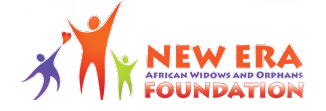Access to clean water Impacting on Lives in Western Kenya!!
Madam Oddah Ohawa Howard, an African-American lady originally from Kenya lives and works in Seattle in USA. Since leaving Kenya, through the power of God, she managed to found a Non-Government Organization-New Era African Widows and Orphans Foundation to give back to the vulnerable communities in Western Kenya; where she was born and bred.
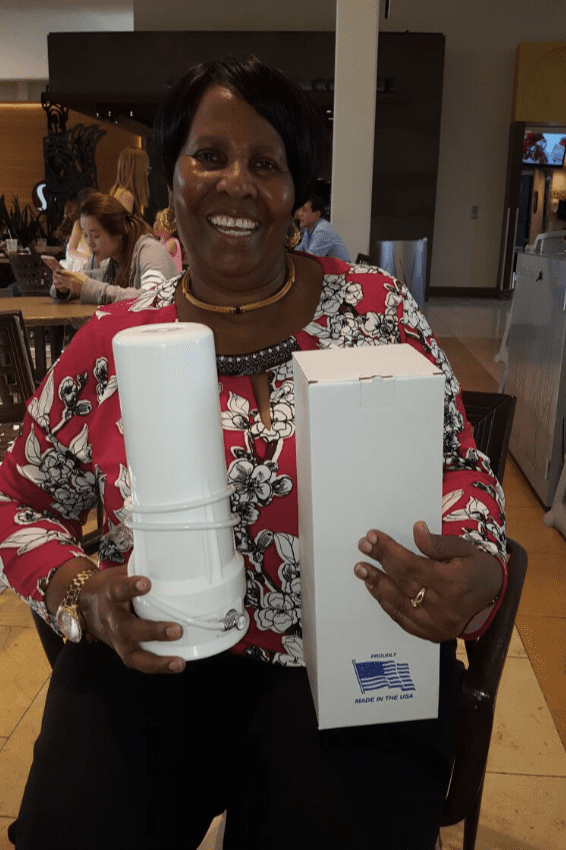
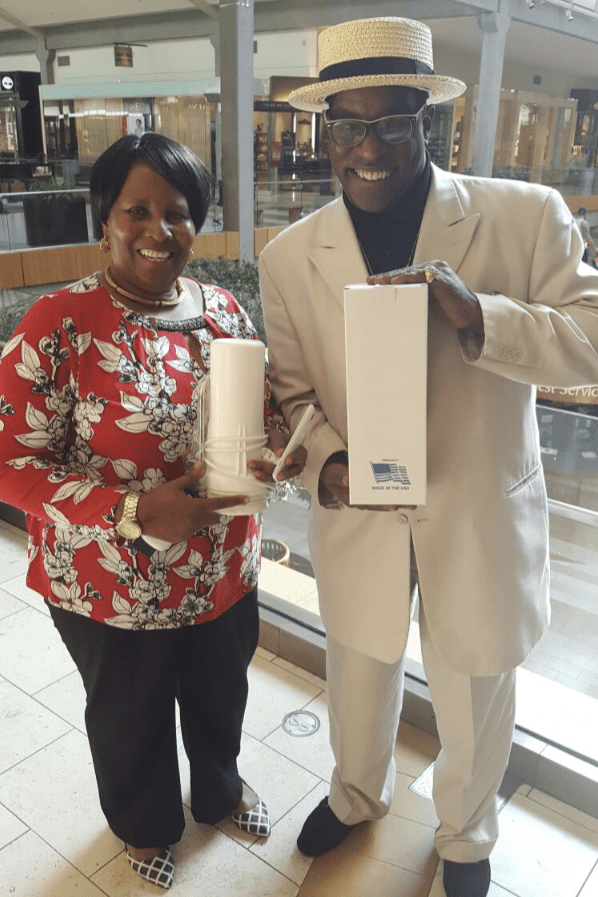
In 2018, she made a two-week trip to Kenya; her original home country, for a working holiday. Since leaving Kenya, 10 years ago, she was really excited to be back home to reminisce memories of both her childhood and adulthood life. On arrival at the Jomo Kenyatta International Airport she was very surprised with the development. She was well received, together with her team; they were looked after very well by the New Era African Widows and Orphans Foundation Kenya Team. Together with her team, they were driven to Nakuru, enjoying the heart of the Great Rift Valley. The team spend two nights in Nakuru, where she operated various community-based projects before coming to the US; targeting children and women. She had an opportunity to share a meal and interactive moments with New Era African Widows and Orphans Foundation’s beneficiaries in Nakuru.
Together with her team, they arrived in Western Kenya in Siaya County; Jera Village where she has a rural home, where she spent ten days visiting New Era African Widows and Orphans Foundation projects. Western Kenya is one of the poorest and yet most beautiful parts of Africa. Western Kenya presents the second highest Mountain in Kenya; Mount Elgon, two great rivers; Yala and Nzoia that flow to the largest fresh water lake in Africa-Lake Victoria. With the surrounding tracks of maize, rice and sugar cane plantations coupled with valleys and various border entries/exits to Tanzania and Uganda; this makes the region a hidden gem – hardly visited, and with tourists currently under-served due to chronic underinvestment in the region for many years.
The trip to Western Kenya took her with her team to Port Victoria, a poor village on the shores of Lake Victoria, the second widest fresh water lake in the world. Port Victoria is one of New Era African Widows and Orphans Foundation project sites. Port Victoria, is estimated that 25-40% of its population is HIV+. Probably a major reason for Port Victoria’s high HIV-AIDS rate is the “sex for fish” practice. There are more fish buyers than sellers, so to compete for the opportunity to buy fish from fishermen coming in with the catch; women who want to buy fish for resale would trade sex for the opportunity to buy fish and maybe at a cheaper price from the fishermen.
The second contributor of numerous deaths in Port Victoria comes from the rampant water-borne diseases such as cholera, dysentery and typhoid. The challenges of access to clean and safe water to many residents of Port Victoria include lack of knowledge on waste and sewage disposal management. This is caused by one major problem of lack of toilets as a result, the human call for nature is done in the bushes/open places and into the rivers that channel water into the lake. All these human wastes and solid wastes find their way back into the lake polluting the water that is used by millions of habitants around the Lake Victoria region. Further, the local communities bury bodies of their dead near the lake; as one other great problem that exists here it affects a very high percentage of purity of the lake although is being ignored. Most of tombs have inside parts not cemented thus during decomposition and rainy seasons, all the bacteria pollute the underground water which finds its way into the lake finally polluting the water largely. All these with all the biodegradable wastes that goes into the lake creates an oxygen depleting effect that contributes to having less oxygen in the water each day. This with other chemical pollution has also contributed to the death of many fish in the lake hence making the water unsafe. This water furthermore is used by the residents untreated. There’s yet another very common culture of people bathing and doing laundry inside the lake, which not only pollutes the water but also has led to spread of diseases greatly.
Images of Madam Oddah and her team visiting Port Victoria Primary School and the Port Victoria Catholic church Children’s Center and got to see the real need for the children to access clean and safe water.
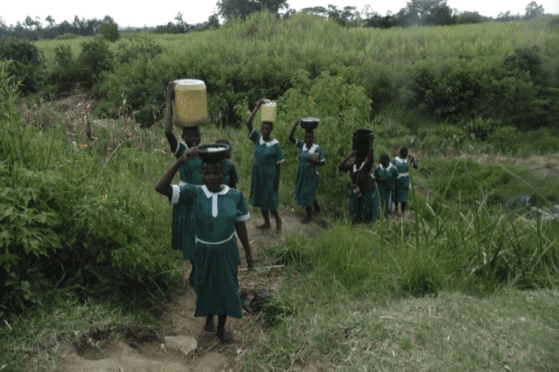
School drawing water from a small stream.
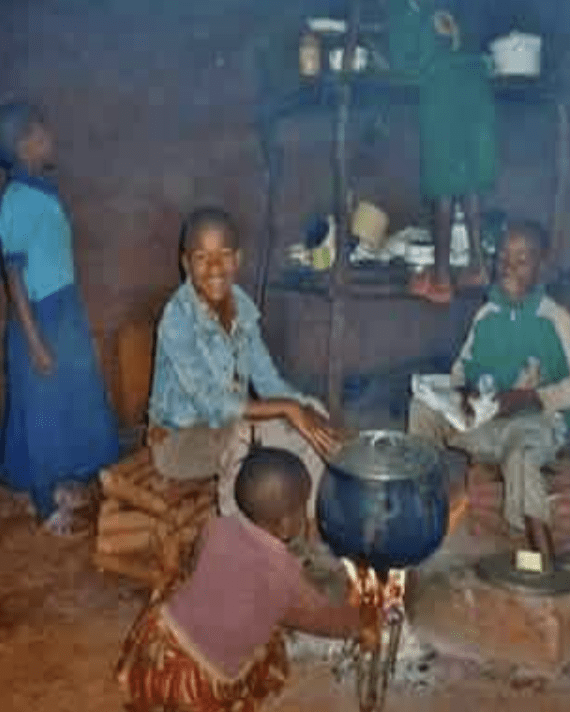
After School the Child-headed households prepare meals.
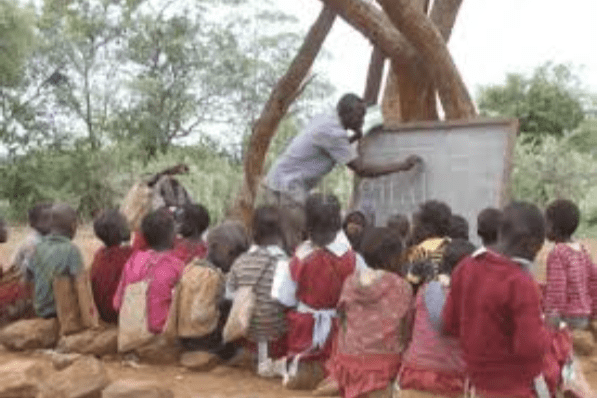
A Childhood Education teacher instructing the kids.
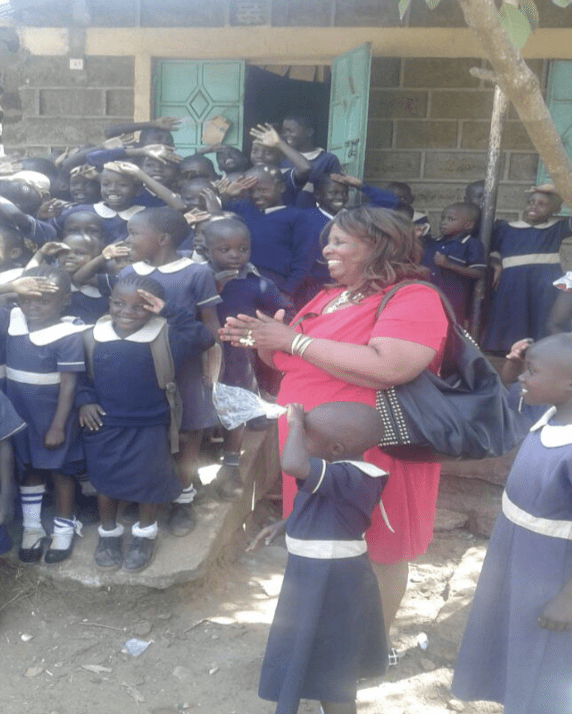
Most of these Children are Orpahns.
Madam Oddah and her team visited the two big public schools in Port Victoria Village; St. Cecilia Namenya Girls Secondary School and John Osogo Boys Secondary School. The visit was primarily to donate the water filters to support the boys and girls have access clean and safer water.
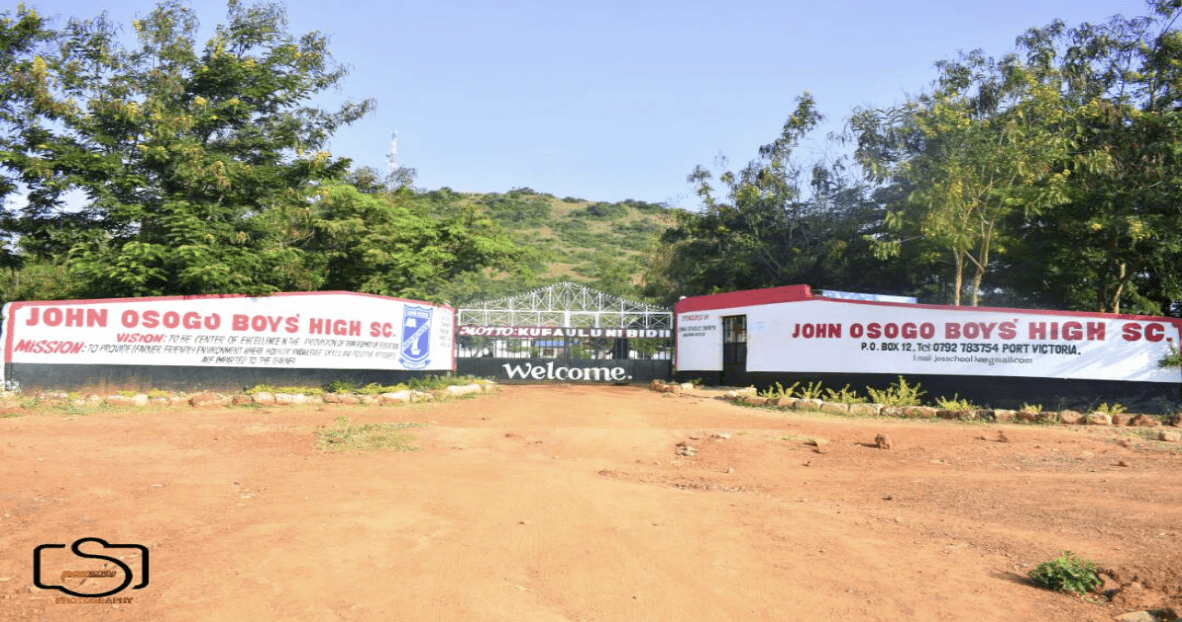
The main entrance to John Osogo Boys Secondary School: has an average population of over 600 Boys; all Boarding
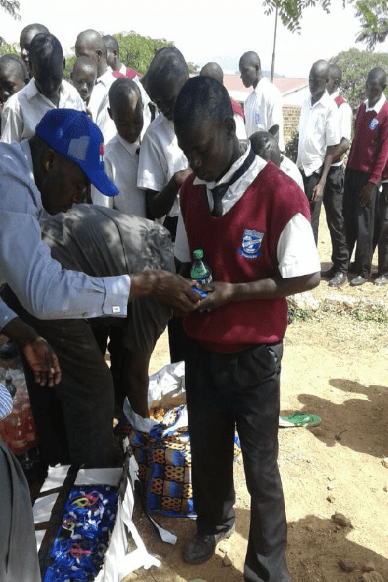
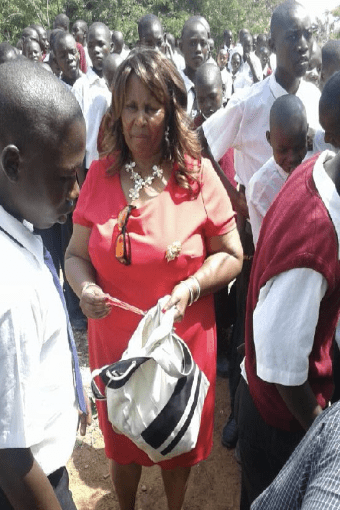
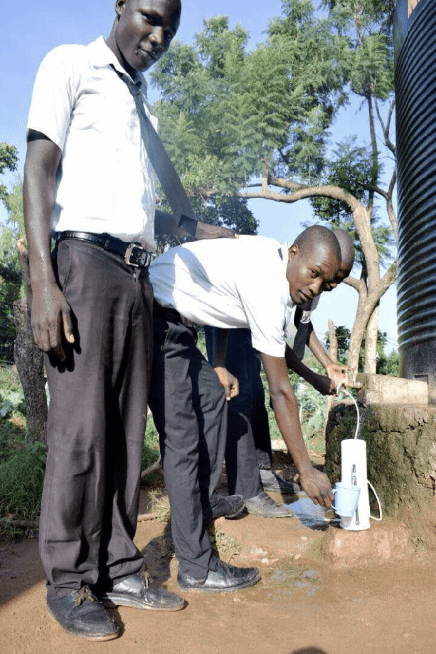
“I had a moment with the Boys; enjoying a snack, distributing tooth brushes and testing the water filter”
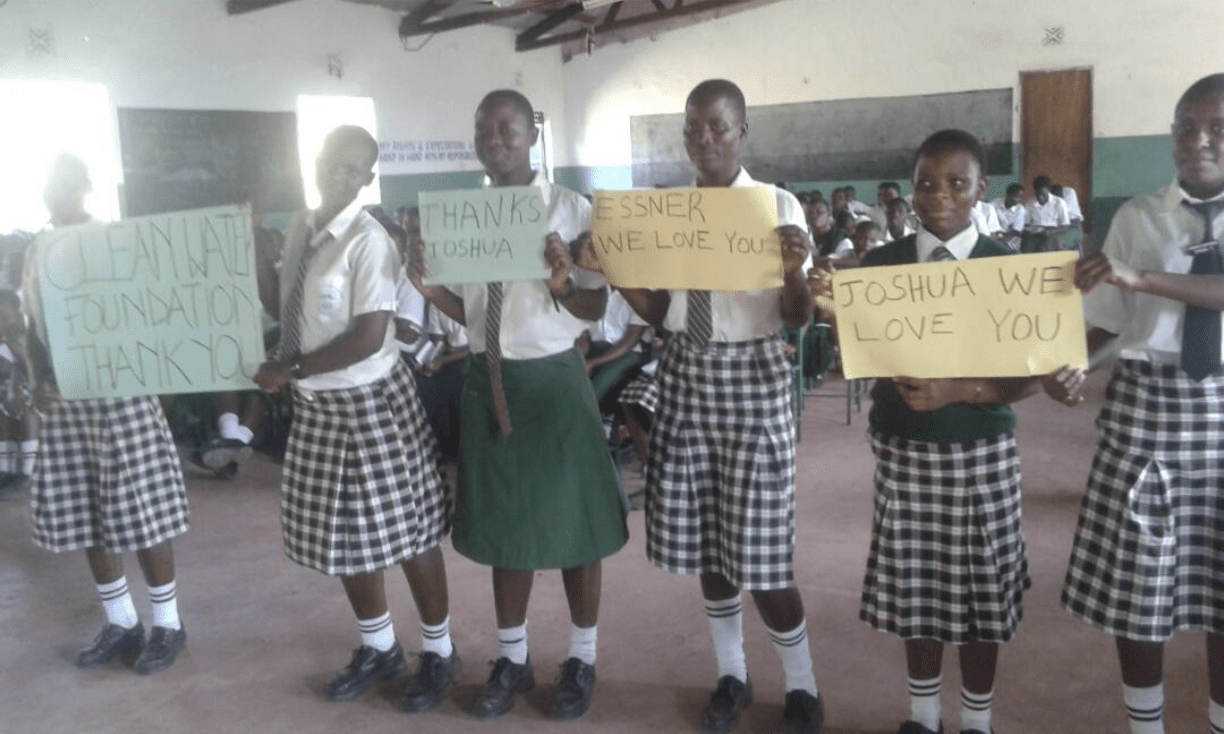
Namenya Girls; did their best to appreciate our little efforts. Fortunately, I spend my High School days in this school.
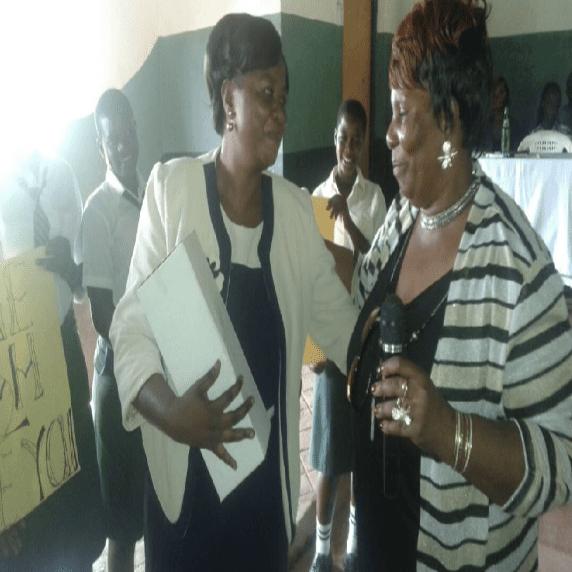

Had a moment with the Head Teacher; she has a huge burden of Orphans who are unable to pay school fees
From madam Oddah’s visit, she noted various challenges that face communities living around the shores of Lake Victoria including Port Victoria. Together with her team, they shared with various community leaders, friends, relatives and members of the public on the best interventions to be done to serve the communities. From her trip, she is planning to invest in a local coordinating office for New Era African Widows and Orphans Foundation; probably based in Nakuru. This will ensure appropriate documentation of the organization’s work as well as follow up on implementation and sustainability of our projects. She also noted the urgency of reviving the organization’s feeding programme; since many households in Western region- along Lake Victoria have no access to food thus prompting a lot of cases of child malnutrition and deaths. To support the child-headed households as well as widows, she thought vocational skills and economic empowerment programs e.g. agribusiness (Farm-to-Market) will add value to these communities. She set up a team to continue educating the beneficiary users of the water units to understand the importance of having clean water and proper sanitation to prevent disease prevalence and increase healthy living.
